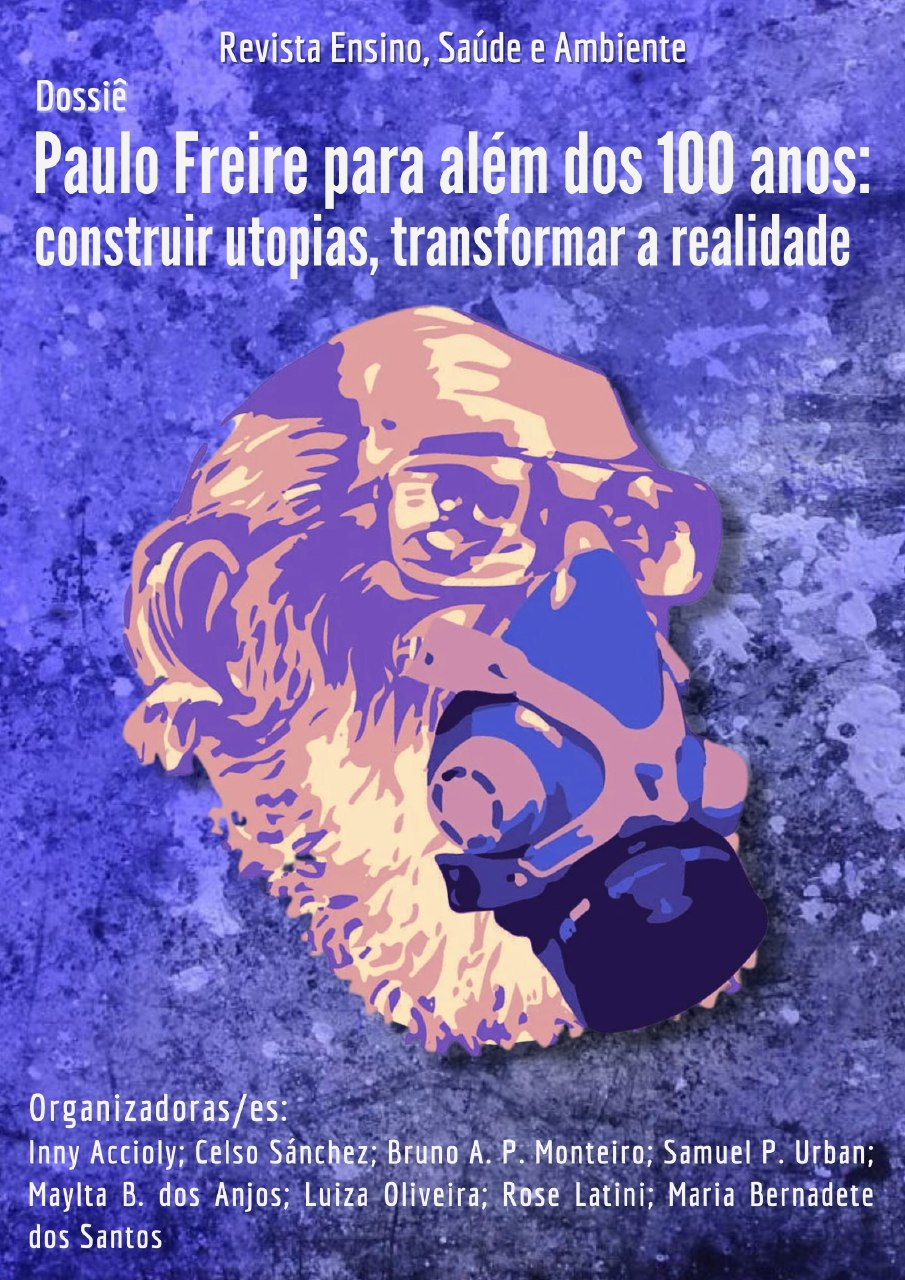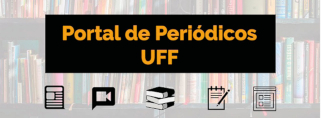Dialogando com Freire e Foucault
a interdição do corpo na educação e os limites do ensino da linguagem
DOI:
https://doi.org/10.22409/resa2021.v14iesp..a51040Palavras-chave:
Paulo Freire. , Michel Foucault., ensino da linguagem, docilização do corpo., interdição do corpoResumo
Este ensaio tem como objetivo pôr em diálogo a teorização do corpo nos estudos de Michel Foucault e Paulo Freire a fim de obter-se uma maior claridade acerca das relações de poder que estabelecem a língua como um discurso do poder em instituições e mercados linguísticos vinculados à normatividade interditória da criatividade comunicativa humana. A partir desse diálogo, buscamos reconhecer possibilidades para a realização do ensino da língua/gem nas escolas de modo que se possa catalisar o “inédito viável” da tolerância linguística numa sociedade democrática marcada pela desigualdade social extrema, como o Brasil, imaginando condições dentro e fora das escolas para que se pense na inclusão social de corpos e das linguagens que o representam.
Downloads
Referências
AGUIAR, V. Um balanço das políticas do governo Lula para a educação superior: continuidade e ruptura. Rev. Sociol. Polit., v. 24, n. 57, p. 113-126, 2016. doi: 10.1590/1678-987316245708
ANDRADE, O. Manifesto antropófago e outros textos. São Paulo: Companhia das Letras. 2017.
BAGNO, M. Preconceito linguístico: o que é, e como se faz. São Paulo: Parábola Editorial, 2015.
BAGNO, M; RANGEL, E de O. Tarefas da educação lingüística no Brasil. Rev. Brasileira de Lingüística Aplicada, v. 5, n. 1, 2005. doi: 10.1590/S1984-63982005000100004
BAUER, L; TRUDGILL, P (1998). Language myths. New York: Penguin Books.
BAUMAN, R; BRIGGS, C L. Voices of modernity: language ideologies and the politics of inequality. Cambridge University Press, 2003.
BAGNO, M. A norma oculta: língua e poder na sociedade brasileira. São Paulo: Parábola, 2006.
BORGES, V. A reconstrução de uma ética pedagógica libertadora à luz de Paulo Freire. Curitiba: CRV, 2021.
BOURDIEU, P. Language and symbolic power. Malden, MA: Polity Press, 2005.
BOURDIEU, P. Habitus and field: general sociology. Volume 2, Lectures at the Collège De France (1981-1982). English ed. Cambridge, UK; Medford, MA, USA: Polity, 2020.
BUBER, M. Eu e tu. São Paulo: Centauro, 2001.
CANAGARAJAH, A S. Translingual practice: global englishes and cosmopolitan relations. London, UK; New York, USA: Routledge, 2013.
DOWBOR, F F. Quem educa marca o corpo do outro. CARVÁLHO, S.; LUPPI, D (Org.). São Paulo: Cortez, 2008.
ESPINOSA, B de. Tratado da reforma da inteligência. São Paulo: Companhia Editora Nacional, 1966.
DOS SANTOS, T G F (Org.). Desconstruindo Paulo Freire. Porto Alegre: História Expressa, 2017.
FAIRCLOUGH, N. Language and Power. Abingdon, Oxon: Routledge, 2013.
FARACO, C A. Norma culta brasileira: desatando alguns nós. São Paulo: Parábola, 2008.
FARACO, C A. Polêmica Vazia. Gazeta do Povo, 18 mai. 2007. Disponível em: https://www.gazetadopovo.com.br/opiniao/artigos/polemica-vazia-4etbso9uhn84b75zwtmzspp3i/. Acessado em 26 julho 2020.
FENDLER, L. Michel Foucault. New York;London: Continuum. 2010.
FIORI, E M. Prefácio: Aprender a dizer a sua palavra. In: FREIRE, Paulo. Pedagogia do oprimido. Rio de Janeiro: Paz e Terra, 2005, p. 7-22.
FREIRE, A M A. Analfabetismo no Brasil: da ideologia da interdição do corpo à
ideologia nacionalista, ou de como deixar sem ler e escrever desde as Catarinas (Paraguaçu),
Filipas, Madalenas, Anas, Genebras, Apolônias e Grácias até os Severinos. São Paulo: Cortez,
a.
FREIRE, P; SHOR, Ira. Medo e ousadia: o cotidiano do professor. Rio de Janeiro: Paz e
Terra, 1986.
FREIRE, P. Entrevista concedida ao International Literacy Institute. Disponível em: https://www.youtube.com/watch?v=aFWjnkFypFA. Acessado em: 24 de julho de 2021.
FREIRE, P. Conscientização: teoria e prática da libertação: uma introdução ao
pensamento de Paulo Freire. São Paulo: Centauro, 2001a.
FREIRE, P. Professora sim, tia não: cartas a quem ousa ensinar. São Paulo: Olha
d’água, 2001b.
FREIRE, P. Pedagogia da autonomia. São Paulo: Paz e Terra, 2002.
FREIRE, P. À sombra desta mangueira. São Paulo: Olho d’água, 2003a.
FREIRE, P. Educação e atualidade brasileira. São Paulo: Cortez, Instituto Paulo Freire, 2003b.
FREIRE, P. Pedagogia do oprimido. Rio de Janeiro: Paz e Terra, 2005.
FREIRE, P. Pedagogia da esperança. São Paulo: Paz e Terra, 2009.
FREIRE, P. Educação e mudança. São Paulo: Paz e Terra, 2011.
FREIRE, P; SHOR, I. Medo e ousadia: o cotidiano do professor. Rio de Janeiro: Paz e
Terra, 2013.
FREIRE, P; MACEDO, D. Alfabetização: leitura do mundo, leitura da palavra. Rio de Janeiro: Paz e Terra, 2011.
FOUCAULT, M. The Foucault reader. New York: Pantheon Books, 1984.
FOUCAULT, M. História da sexualidade 1: a vontade de saber. Rio de Janeiro: Graal, 1999.
FOUCAULT, M. Arqueologia do saber. Rio de Janeiro: Forense Universitária, 2009a.
FOUCAULT, M. Vigiar e punir: nascimento da prisão. Rio de Janeiro: Vozes, 2009b.
FOUCAULT, M. Microfísica do poder. Rio de Janeiro: Edições Graal, 2010.
GIMBO, F. Emancipação intelectual e democracia: para uma filosofia crítica da educação a partir de Jacques Rancière e Paulo Freire. Griot: Revista de Filosofia, Amargosa, Bahia, v.16, n.2, p.270-284, 2017.
GOULART, N. As lições do livro que desensina. Veja, 20 maio de 2011. Disponível em: https://veja.abril.com.br/educacao/as-licoes-do-livro-que-desensina/. Acessado em 24 julho 2020.
KRAMER, D. Por uma vida pior. O Estado de São Paulo, 17 de maio de 2011. Disponível em: https://politica.estadao.com.br/noticias/geral,por-uma-vida-pior,720286. Acessado em 24 julho 2020.
MACIEL, L S B; NETO, A S. A educação brasileira no período pombalino: uma análise histórica das reformas pombalinas do ensino. Educação e Pesquisa, v. 32, n. 3, pp. 465-476 , 2006.
MAKONI, S; & PENNYCOOK, A. Disinventing and reconstituting languages. UK; USA; Canada: Multilingual Matter Ltd, 2006.
MIGNOLO, W. Desobediencia epistémica: retórica de la modernidad, lógica de la colonialidad y gramática de la descolonialidad. Buenos Aires, Argentina: Ediciones del Signo, 2010.
MERLEAU-PONTY, M. Phenomenology of perception. New York: Taylor & Francis, 2013.
MOEHLECKE, S. As políticas de diversidade na educação do governo Lula. Cadernos de Pesquisa, v. 39, n. 137, p.461-487, 2009.
ORTEGA Y GASSET, J. Meditaciones del Quijote. Connecticut: Martino Fine Books, 2012.
POPPER, K R. The open society and its enemies. Princeton, N. J: Princeton University Press, 2020.
RAMOS, H C. Por uma vida melhor [Coleção Viver, aprender]. São Paulo:
Ação Educativa/Global, 2009.
RANCIÈRE, J. O mestre ignorante: cinco lições sobre a emancipação intelectual. Belo Horizonte: Autêntica, 2007.
RYMES, B. How we talk about language: exploring citizen sociolinguistics. Cambridge, UK: Cambridge University Press, 2020.
ROUSMANIERE, K; SOBE, N W. Education and the body: introduction, Paedagogica Historica, v. 54:n. 1-2, p. 1-3, 2018. doi: 10.1080/00309230.2017.1409774
RUFINO, L. Pedagogia das Encruzilhadas. Rio de Janeiro: Mórula Editorial, 2019.
SANDLIN, A.; SCHULTZ, B.D.; BURDICK, J. Handbook of public pedagogy: education and learning beyond schooling. New York: Routledge, 2010.
SANTOS, C X. Estudo sobre o ensino da análise linguística na última década: panorama do impacto da virada pragmática no livro didático de português. 2015. 159 f. Dissertação (Mestrado em Estudos Linguísticos) - Faculdade de Letras da UFMG, Belo Horizonte, 2015.
VIEIRA, S R. Gramática, variação e ensino diagnose e propostas pedagógicas. São Paulo: Blucher, 2018.
WIEDEMER, M L Da sociolinguística variacionista à sociolinguística cognitiva: panorama e perspectivas. Revista Philologus, Ano 20, n. 58. Rio de Janeiro: CIFEFIL, 2014.
Downloads
Publicado
Edição
Seção
Licença
Copyright (c) 2021 Ensino, Saude e Ambiente

Este trabalho está licenciado sob uma licença Creative Commons Attribution 4.0 International License.
Os autores que publicam nesta Revista concordam com os seguintes termos:
1. Autores mantém os direitos autorais e concedem à revista o direito da primeira publicação.
2. Autores têm autorização para assumir contratos adicionais separadamente, para distribuição não-exclusiva da versão do trabalho publicado nesta revista (ex.: publicar em repositório institucional ou como capítulo de livro), com reconhecimento de autoria e da publicação inicial nesta revista.







